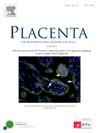The emerging role of microRNA-based therapeutics in the treatment of preeclampsia
IF 3
2区 医学
Q2 DEVELOPMENTAL BIOLOGY
引用次数: 0
Abstract
Preeclampsia (PE) is a pregnancy complication that is often diagnosed due to elevated blood pressure and proteinuria. Though current research focuses on the identification of novel biomarkers and therapeutic targets, still, there is a lack of clinical validation for the use of biomarkers and therapeutic targets for early diagnosis and treatment of PE. Several molecules are being studied for their potential role in PE. Among them, microRNAs are studied vastly for their role in the diagnosis, prognosis, and treatment of PE. But only a few studies are focused on the therapeutic efficacy of miRNAs in PE. Thus, the relevant articles were identified and discussed in this review. These studies provide evidence that miRNAs are indeed important molecules in PE that have the role of both therapeutic targets and therapeutic molecules. However, the studies are limited to in vivo an in vitro models, hence further studies are required to validate the complete potential of miRNA therapeutics. Long non-coding RNA (lncRNA) sponges, miRNA mimics, miRNA inhibitors, exosome-associated miRNAs, and several other molecules have been studied as miRNA-based therapeutics in PE. Thus, miRNAs are postulated to be potential therapeutic targets and miRNA-based therapeutics might pave the way for novel therapeutic approaches for PE.
基于 microRNA 的疗法在治疗子痫前期中的新兴作用。
子痫前期(PE)是一种妊娠并发症,通常因血压升高和蛋白尿而被诊断出来。尽管目前的研究主要集中在新型生物标志物和治疗靶点的鉴定上,但使用生物标志物和治疗靶点进行子痫前期的早期诊断和治疗仍缺乏临床验证。目前正在研究几种分子在 PE 中的潜在作用。其中,microRNAs 在 PE 的诊断、预后和治疗中的作用研究较多。但只有少数研究关注 miRNA 在 PE 中的疗效。因此,本综述确定并讨论了相关文章。这些研究证明,miRNA 确实是 PE 中的重要分子,既是治疗靶点,又是治疗分子。然而,这些研究仅限于体内和体外模型,因此需要进一步的研究来验证 miRNA 疗法的全部潜力。长非编码 RNA(lncRNA)海绵体、miRNA 模拟物、miRNA 抑制剂、外泌体相关 miRNA 以及其他一些分子已被作为基于 miRNA 的疗法在 PE 中进行了研究。因此,miRNA 被认为是潜在的治疗靶点,基于 miRNA 的疗法可能为 PE 的新型治疗方法铺平道路。
本文章由计算机程序翻译,如有差异,请以英文原文为准。
求助全文
约1分钟内获得全文
求助全文
来源期刊

Placenta
医学-发育生物学
CiteScore
6.30
自引率
10.50%
发文量
391
审稿时长
78 days
期刊介绍:
Placenta publishes high-quality original articles and invited topical reviews on all aspects of human and animal placentation, and the interactions between the mother, the placenta and fetal development. Topics covered include evolution, development, genetics and epigenetics, stem cells, metabolism, transport, immunology, pathology, pharmacology, cell and molecular biology, and developmental programming. The Editors welcome studies on implantation and the endometrium, comparative placentation, the uterine and umbilical circulations, the relationship between fetal and placental development, clinical aspects of altered placental development or function, the placental membranes, the influence of paternal factors on placental development or function, and the assessment of biomarkers of placental disorders.
 求助内容:
求助内容: 应助结果提醒方式:
应助结果提醒方式:


